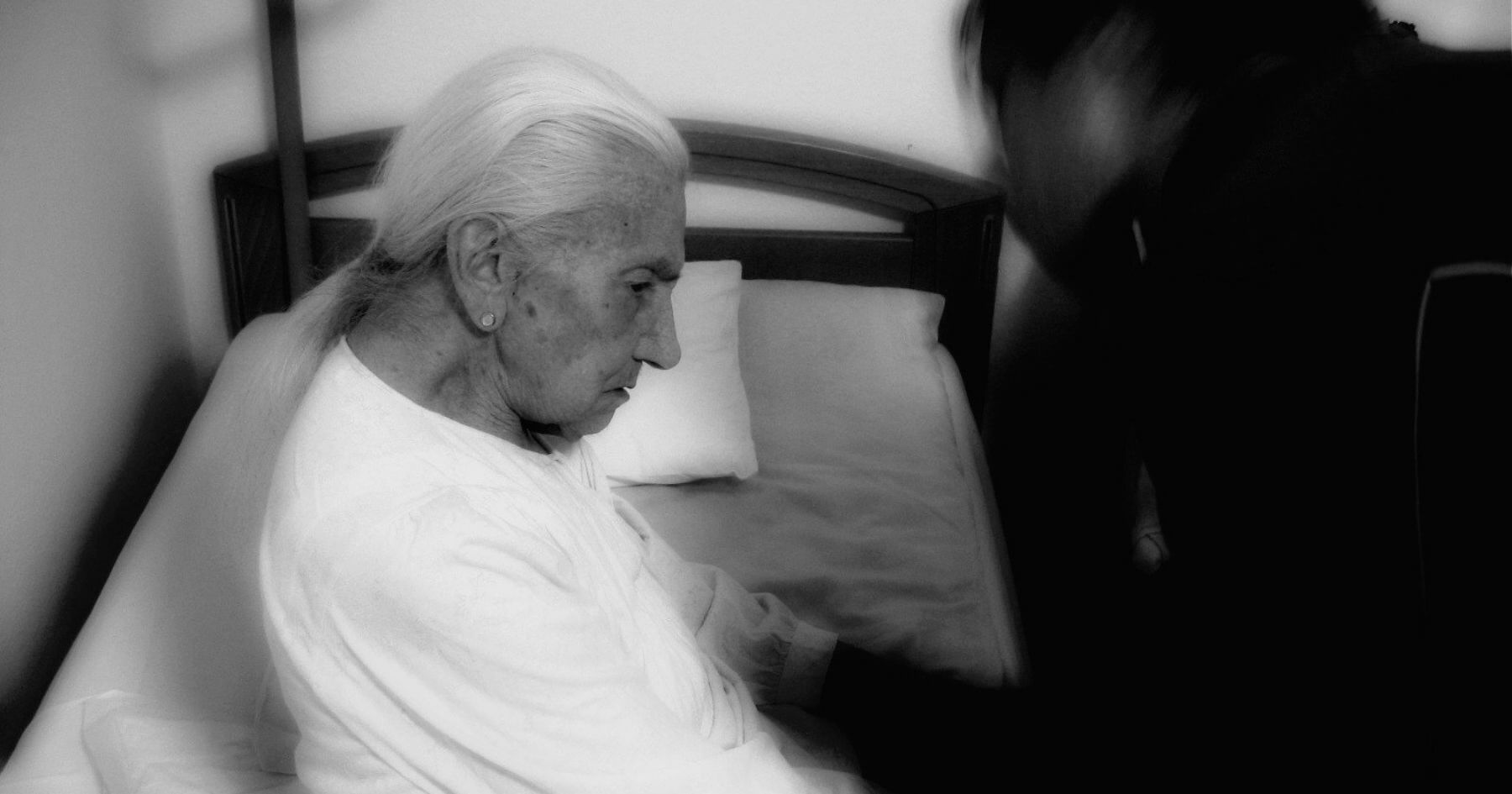A recent article published by leading bioethics journal “The Hastings Center Report”, has proposed an implant that would automatically trigger a lethal drug at the onset of dementia.
In the report, co-authors Margaret Battin and Brent M. Kious, proposed the introduction of an “advance directive implant” (ADI) in an article titled “Ending One’s Life in Advance”. There is even a precedent for this proposed implant: Norplant, a controversial contraceptive implant that was withdrawn from the UK in 1999. Like Norplant, the ADI would be reversible and programmable, but the drugs it would release would cause death instantaneously. It would likely be implanted at the onset of dementia and programmed to activate according to the patient’s prognosis.
They did however, acknowledge the legal and ethical barriers that such proposals would likely face: “Even if our laws were liberalized dramatically…those laws would remain controversial and would continue to impose great burdens on those left behind—on family members, friends, nurses, and, perhaps most acutely, on physicians called upon to act”.
They therefore suggest that “The development of means to enable persons in the early stages of dementia to choose, while competent, the timing of their own deaths without the subsequent intervention of anyone else would go a long way to ameliorating this situation: they can get the better parts of dementia if they wish but avoid the worse parts they reasonably fear”.
They go on, “The permissibility of ADIs would, first, depend on reasonable standards of care and preimplantation assessment criteria. One would not want healthy adults with minimal risk of dementia to receive them; one would not want them to be implanted under external pressure, forcibly, or surreptitiously; one would not want them to be implanted in persons whose decision-making capacities are impaired by depression. One possible set of criteria would be those used for physician aid-in-dying in Oregon: that the requestor be an adult; able to make and communicate health care decisions; seen by at least two physicians who concur in the diagnosis, prognosis, and assessment of decision-making capacity; not suffering impaired judgment due to a psychiatric or psychological disorder, not coerced, and informed of alternatives”.
Framing people with dementia as a burden
However, it is clear that they are in favour of the proposal, at least in part due to the reduction of responsibilities it would offer those surrounding people with the condition, and they conclude that, “Perhaps the greatest advantage of ADIs is that they would reduce the distress that living and dying with dementia imposes on others”.
“Horrible… even if I agree with the conclusion”.
They go on: “As we said at the outset, whether this consideration of the ADI is understood as a conjecture, as a hypothetical exploration, as a real-life thought experiment, or as a proto-proposal, we think it important to take this seemingly radical idea seriously. We may not currently have the technology to realize it, and perhaps not the social conditions that would allow it to be used without abuse. It may even be hard to conceive of this idea: “Horrible,” said one friend, “even if I agree with the conclusion.” But we think it is an important idea nevertheless: it makes us see what is so problematic about how we respond to dementia in our current world, forcing some to suffer a future they dread and burdening others with acting for them. No one, really, wants to live with dementia: for most of us, it is bad to lose the memories and cognitive capacities that contribute to who we are and that enable us to do many of the things we care about”.
“Feasible in the near future”
Yet, while they explain that, “[as] The ADI would require extensive engineering” it “may not be feasible with current technologies”, they then suggest that “… it could become feasible in the near future”.
They claim that, “It is crucial that the ADI be easily and immediately removable. After all, even those certain of their wish to obtain it would still like the option of changing their minds, at least prior to the onset of dementia, whether for personal reasons or because an effective treatment for their condition has been developed”.
“Part of the essence of true humanity is caring and loving each other”
In response to the article’s proposal, Wesley J. Smith, an author and a senior fellow at the Discovery Institute’s Center on Human Exceptionalism, wrote “…And don’t any reader tell me that I don’t know how difficult Alzheimer’s can become. My mother died of the disease, spending the last five months of her life living in my wife’s and my home, with quality hospice care. Was it easy? No! But so damn what? Part of the essence of true humanity is caring and loving each other — no matter how taxing and emotionally devastating — especially when a person is so ill or injured they can’t take care of themselves. That’s the best part of who we should be”.
Pushing the boundaries
Chair of the pro-assisted suicide group, ‘Dignity in Dying’, Baroness Meacher’s private member’s bill on assisted suicide received its First Reading in the House of Lords on 26 May this year, and a Second Reading is expected in the autumn.
The Bill follows the Marris-Falconer Assisted Dying Bill (2015), which was defeated by a majority of 330 to 118 MPs.
According to supporters of the Bill, Dignity in Dying, “[t]he bill is modelled on legislation that has been in place in Oregon, USA for over 23 years […]”.
Other countries that have introduced supposedly restricted assisted suicide and euthanasia legislation have seen an expansion of their laws as medical professionals and activists push the boundaries of acceptable practice.
Expanding euthanasia law
Belgium and the Netherlands already permit ‘advance orders’ to be euthanised.
In the Netherlands, Canada, and Belgium, the law that permits euthanasia has also rapidly expanded to include more categories of people.
Belgium legalised euthanasia in 2002 and since then, the practice has even been extended to children. The current law allows euthanasia if the patient is in a state of constant physical or psychological pain.
There is now a renewed push for euthanasia to be available for those who are healthy but have decided they have led a ‘fulfilled life’.
In the Netherlands, where euthanasia has been legal since 2002, doctors are now permitted to secretly sedate patients who have dementia before euthanising them. The law permits voluntary euthanasia for anyone over the age of 16, and children aged 13-15 can be euthanised with their parents’ consent. Earlier this year, the Dutch government said it would be changing the regulations to allow doctors to end the lives of terminally ill children between the ages of one and twelve.
Euthanasia has been legal in Canada since 2016. In 2019 however, following the euthanising of Alan Nichols, a former school caretaker who was physically healthy but struggled with depression, the legal requirement that a person be terminally ill before administration of euthanasia was dropped.
Bill C-7, recently passed by the Canadian Parliament, intends to further extend euthanasia legislation to people with disabilities and those with mental health issues.
Right To Life UK spokesperson, Catherine Robinson, said: “It is difficult to know where to begin with this article’s issues. Firstly, the author’s assumption that Oregon-style safeguards will ensure an ethical approach is woefully misleading. In Oregon, if one doctor refuses to partake in euthanasua, the patient is generally able to “doctor shop” until they find a willing executioner. There is zero state oversight, and the system relies on self-reporting by doctors who stand to gain from the business, and rarely refer their suicidal patients to psychologists”.
“Moreover, their claim that “No one wants to live with dementia” is a grossly dehumanising message. People facing this illness are already constantly faced with such language that disregards their inherent human dignity, and it is irresponsible that influential publications should contribute to the callous cultural attitude that certain people’s lives are worth less than others’ because they may suffer from a certain illness”.












